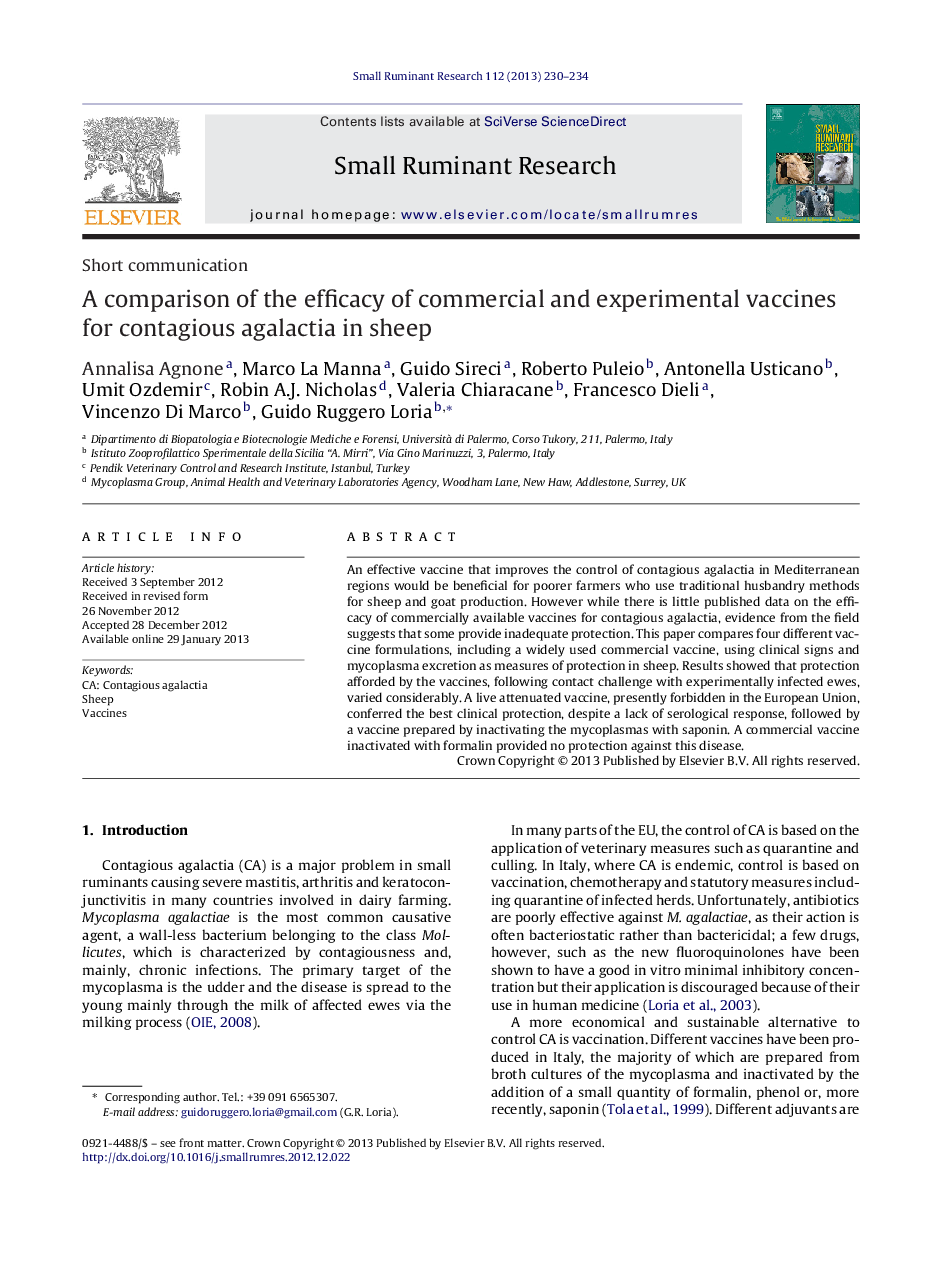| Article ID | Journal | Published Year | Pages | File Type |
|---|---|---|---|---|
| 5795785 | Small Ruminant Research | 2013 | 5 Pages |
An effective vaccine that improves the control of contagious agalactia in Mediterranean regions would be beneficial for poorer farmers who use traditional husbandry methods for sheep and goat production. However while there is little published data on the efficacy of commercially available vaccines for contagious agalactia, evidence from the field suggests that some provide inadequate protection. This paper compares four different vaccine formulations, including a widely used commercial vaccine, using clinical signs and mycoplasma excretion as measures of protection in sheep. Results showed that protection afforded by the vaccines, following contact challenge with experimentally infected ewes, varied considerably. A live attenuated vaccine, presently forbidden in the European Union, conferred the best clinical protection, despite a lack of serological response, followed by a vaccine prepared by inactivating the mycoplasmas with saponin. A commercial vaccine inactivated with formalin provided no protection against this disease.
